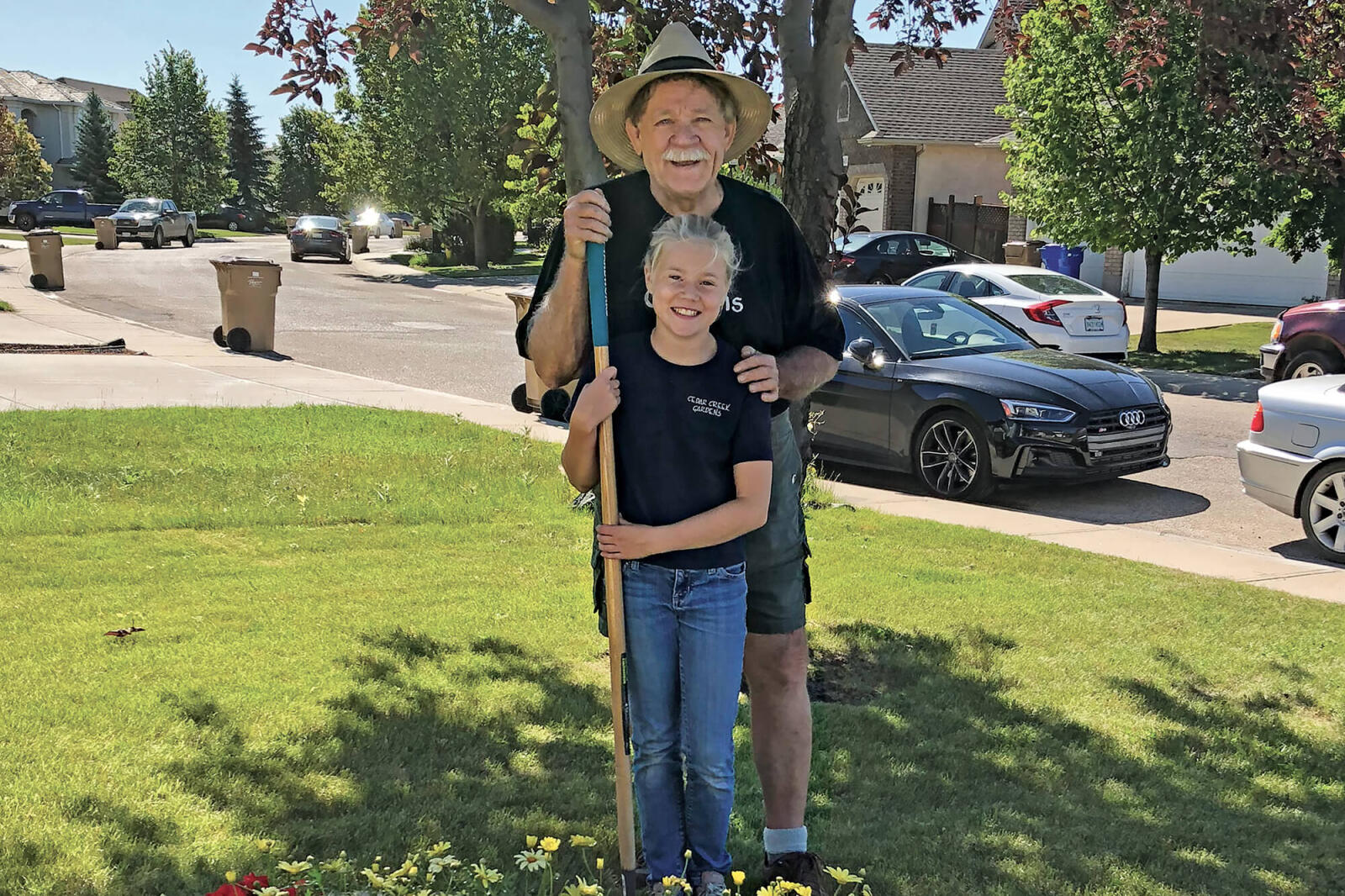October 4, 2018

I am teaching 12-year-old Ashland how to maintain flower beds. Her parents own Cedar Creek greenhouse, where I work part time. She is an excellent worker. When she cleans the greenhouse, it is up to my standards.
Young people and our trade
BY ROD McDONALD
 I have no worries about our young people today. Our future is secure with them. That is a very strong statement, and yet it is one that I stand by.
I have no worries about our young people today. Our future is secure with them. That is a very strong statement, and yet it is one that I stand by.For as long as we have existed, as the human race, there have been those who predicted dire times ahead as, “Young people just don’t want to work hard anymore!”
Similar phrases have been continually mouthed, about the next generation. My mother, when frustrated by her children (read me), would mutter, “When I was your age I didn’t dare talk back to my parents the way you do today.” At the time, she did not hold out much hope for my future. Lippiness aside, I somehow managed to start a business, work hard, buy a house and raise a family.
I tried, somewhat unsuccessfully, not to let my mother’s voice be reincarnated into my body as I raised my own children. On one occasion the boys would not settle at bedtime. I shouted up the stairs, “If you are not in bed within the next two minutes, I am coming up there and you don’t want me coming up there. This is your final warning!” My five-year-old’s voice came back, “That is the fourth time you said it was your final warning.” Sigh. Big sigh.
Having grown up in the ’60s and listened to Richard Nixon and Spiro Agnew decry the youth of the day as being a mass of unwashed hippies, their predictions of imminent doom were left unfulfilled. The unwashed mass actually got jobs, started businesses, bought houses, had families, and life carried on as it always has. Sadly, after having been denigrated by the old fogies 50 years ago, my generation feels it is now our turn to complain. We have become the next set of old fogies, in spite of our proclamations it would never happen. God help us.
My point is simple: The laments and the predictions should be shelved. And if any, by chance, prove to be true, we have failed in our responsibility to teach and to pass along skills and knowledge.
To shift gears from us humans, but staying along the generational issues, I was watching a National Geographic show on killer whales. It showed a pod of adult killer whales teaching a juvenile how to hunt. The adult hunters actually dislodged a seal from an ice floe and then promptly returned the same seal back to the ice. The killer whales did not kill the seal. It was strictly instructional, teaching the next generation hunting techniques. Wow! These techniques are not innate. Rather they are learned behaviours that require instruction.
My point is still simple: If killer whales need to teach the next generation, then so do we.
At my garden centre, we employed 15 high school students each spring season. We tried to keep it balanced with five Grade 10s, five Grade 11s and five Grade 12s. Each year students were with us, we increased their responsibility, and part of the Grade 12 responsibility was to teach the Grade 10 students. We used the high school students as our runners, our quick feet. They were great at customer carryout service, they were excellent at running to the back of the compound to restock an item and so on.
I got compliments from customers on the service they received from our high school students. I love compliments. One woman asked, “Where do you find such polite students?” My answer surprised her. I said: “We don’t find them. We train them to be polite.”
People do not automatically know how to work in retail, any more than a juvenile killer whale knows how to hunt. They have to be taught. The students received instruction on how to talk to customers. The basics, such as saying, “Allow me to carry that to your car for you,” instead of asking, “Do you want carry out service?” To me, carry out service is not an option. Everyone sells products. We, us independents, sell service, something that people are starved for in this age.
We instructed our high school students that “huh” was never an appropriate response. We insisted on a “pardon me?” Teaching is part of our job as older members of this trade, this tribe. I get it, especially after the time a student, his first day on the job, said to me “okay dude.” Uh…I won’t suggest that I threatened a 16-year-old, but I was quite implicit that he never call me “dude” again. And he didn’t. He was a good kid, only needing the rough edges ground down. Students need training on how to work retail. It is foolish to think that young people, on their first day of work, can be thrown into the line of fire with no guidance.
When I was 15, one of the things I detested about working for some adults was being treated as nothing more than a strong back and a weak mind. As an adult, I resolved to explain to young people how important they were to the garden centre’s operation. “When you carry out a customer’s purchase to his or her car, you are being our good will ambassador. You are the last impression they will have of our place, so make it a good one.” Most of the students got it that I valued their work. A few didn’t, and sometimes they were just not ready. Attitude is everything. Skills can be taught but attitude, especially a positive one, is either there or it is not. That statement applies to all employees at any age.
In the last five years, I have been working with a handful of young people, training them in the world of horticulture and gardening. They have been as young as 12 (a friend’s daughter) and as old as 25. Each one has talent and ability. I teach them the basics, those important lessons, and I ask them the next day, to repeat what they had been taught. I smile as a 16-year-old tells me, “The broom is the first thing we load onto the truck, as we are in the beauty business, not the landscaping business.” Cleaning up after ourselves is important to the customer, and greatly appreciated. Once young people understand that sweeping is not a chore, rather a part of creating beauty, then they will carry that task out with diligence.
Each young person we train needs to understand the why of each task, not just the how. As we teach students how to dead-head geraniums, we should also explain how the task will enhance blooms in a week’s time.
Training young people in the work process, how to serve customers and how to maintain flower beds, is important for them and it is important for us. We need skilled and talented employees. If trained properly, young people will not only make our lives easier, but they will make our businesses more profitable. If we water the plants in our greenhouse, fertilize them and generally take good care of them, then we should take good care of our young employees. After all, they are an asset, a value to us.
My beloved mentor taught me life lessons as well as horticultural lessons. Lessons that have stayed with me for 40 years, and have helped me be successful in this trade of ours. Pass along your lessons to the young people, and those students will help you to stay on the road to success.
Rod McDonald owned and operated Lakeview Gardens, a successful garden centre/landscape firm in Regina, Sask., for 28 years. He now works full time in the world of fine arts, writing, acting and producing in film, television and stage.